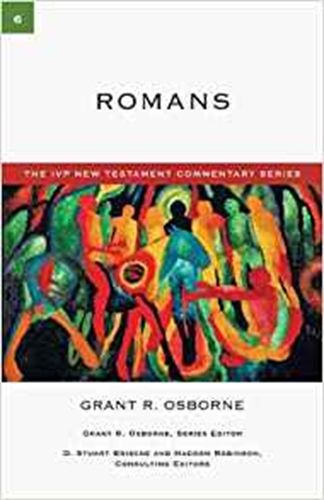
Few individual books of the Bible have changed the course of church history the way Paul's letter to the Romans has.
Whether one thinks of Augustine's conversion in the fourth century, Luther's recovery of justification by faith in the sixteenth or Barth's challenge to recover theological exegesis of the Bible in the twentieth, Romans has been the catalyst to personal spiritual renewal and the recapturing of gospel basics.
Paul, in seeking to bring unity and understanding between Jews and Gentiles in Rome, sets forth in Romans his most profound explication of the gospel and its meaning for the church. The letter's relevance is as great today as it was in the first century.
Throughout this commentary, Grant R. Osborne explains what the letter meant to its original hearers and its application for us today.
Whether one thinks of Augustine's conversion in the fourth century, Luther's recovery of justification by faith in the sixteenth or Barth's challenge to recover theological exegesis of the Bible in the twentieth, Romans has been the catalyst to personal spiritual renewal and the recapturing of gospel basics.
Paul, in seeking to bring unity and understanding between Jews and Gentiles in Rome, sets forth in Romans his most profound explication of the gospel and its meaning for the church. The letter's relevance is as great today as it was in the first century.
Throughout this commentary, Grant R. Osborne explains what the letter meant to its original hearers and its application for us today.


